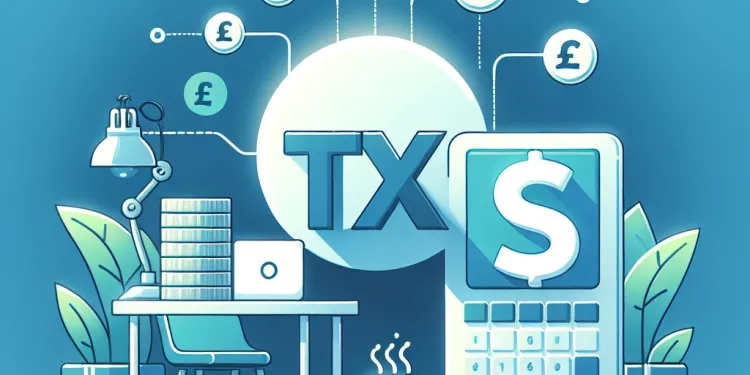
Find A Professional
More Items From Ergsy search
-

Is the Living Wage Foundation's rate the same as the National Living Wage?
Relevance: 100%
-

Who is eligible for the National Living Wage?
Relevance: 94%
-

How does the National Living Wage differ from the National Minimum Wage?
Relevance: 94%
-

How does the UK National Living Wage compare internationally?
Relevance: 92%
-

How can I calculate my new earnings based on the National Living Wage increase?
Relevance: 90%
-

What is the new UK National Living Wage for 2026?
Relevance: 89%
-

Why is the National Living Wage being increased?
Relevance: 88%
-

UK national living wage increase 2026
Relevance: 87%
-

How often is the National Living Wage reviewed?
Relevance: 85%
-

Where can I find official announcements on the National Living Wage?
Relevance: 84%
-

Are employers legally required to pay the National Living Wage?
Relevance: 84%
-

How is the National Living Wage calculated?
Relevance: 83%
-

Is the tax refund amount taxable?
Relevance: 81%
-

Are apprentices entitled to the National Living Wage?
Relevance: 80%
-

Are zero-hour contract workers entitled to the National Living Wage?
Relevance: 75%
-

Would a wealth tax replace other taxes in the UK?
Relevance: 75%
-

How does a wealth tax differ from an income tax?
Relevance: 74%
-

Can my tax refund be applied to my future tax obligations?
Relevance: 71%
-

Do unpaid tax debts affect Inheritance Tax calculations?
Relevance: 68%
-

How is the tax refund amount calculated?
Relevance: 67%
-

How often do wage rates change in the UK?
Relevance: 67%
-

Could a wealth tax encourage tax avoidance?
Relevance: 67%
-

What is the wealth tax in the UK?
Relevance: 65%
-

How might these changes affect taxpayers on PAYE?
Relevance: 65%
-

Liver disease | NHS
Relevance: 63%
-

Do I need to pay tax on the £500 cost of living payment?
Relevance: 63%
-

Higher Income Tax - How to Claim Pension Tax Relief | Extra 20% Boost
Relevance: 61%
-

Can a wealth tax be levied annually?
Relevance: 59%
-

What happens if an employer pays below the National Living Wage?
Relevance: 59%
-

How will dividend taxation change in April 2026?
Relevance: 59%
-

HMRC Tax Refund letters
Relevance: 58%
-

Are there any countries currently implementing a wealth tax?
Relevance: 58%
-

What is the Wealth Tax in the UK?
Relevance: 58%
-

How do I claim my tax refund from HMRC?
Relevance: 58%
-

What Happens to Tax Debt After Death? (UK Laws)
Relevance: 58%
-

Does the National Living Wage increase mean my taxes will change?
Relevance: 57%
-

How is a wealth tax typically calculated?
Relevance: 57%
-

Will the increase in the National Living Wage affect inflation?
Relevance: 57%
-

Are these grants taxable?
Relevance: 56%
-

What happens if I do not claim my tax refund?
Relevance: 56%
Understanding the National Living Wage Increase
The National Living Wage in the UK is a critical factor for many workers, as it dictates the minimum amount that employees aged 23 and over are legally entitled to receive for their work. Annually, the government reviews this rate, and adjustments are made to align with economic conditions, the cost of living, and recommendations from the Low Pay Commission. When there is an increase in the National Living Wage, it can have various implications for both employees and employers, including potential changes in taxation.
Impact on Personal Taxes
When the National Living Wage increases, it means that individuals earning at this rate will see an uptick in their annual income. An increase in wages can potentially push some employees' total income into a higher tax bracket if the increase is significant enough. The UK tax system is progressive, meaning tax rates increase as income increases in bands. As of the current tax year, the thresholds can vary, and it is important to check the latest bands and rates from HM Revenue and Customs (HMRC).
For most people, a modest increase in the National Living Wage should not change their tax bracket significantly. However, if your overall income crosses any thresholds due to a rise in hourly wages combined with additional earnings such as bonuses or overtime, you may move into a higher tax band. This would result in a higher percentage of your income being taxed.
National Insurance Contributions
Besides income tax, another component affected by wage changes is National Insurance contributions (NICs). Employees contribute a percentage of their earnings above a certain threshold to NICs, which fund the UK’s social security systems, including the NHS and state pension. If the increase in the National Living Wage results in your earnings crossing the NICs threshold, or moving significantly higher within it, your contributions may increase.
The NICs thresholds, like tax brackets, are subject to annual adjustments, so any changes in your wage calls for a review of the current year's thresholds and rates. An increase in earnings while remaining within the same NIC band means a proportionate rise in the amount you contribute to National Insurance.
Considerations for Employers
While employees focus on the income side, employers must also consider the implications of a National Living Wage increase. Employers need to ensure compliance with the new rates, which may impact their overall payroll expenses. Consequently, businesses may adjust their staffing levels, operational costs, or even pass on costs to consumers through price increases. As payroll expenses rise, companies also face potential increases in their share of employer National Insurance contributions.
Conclusion
In summary, an increase in the National Living Wage could impact taxes mainly through potential changes in tax brackets and National Insurance contributions. Both employees and employers should stay informed on the latest tax thresholds and rates to ensure compliance and accurate financial planning. It's advisable for individuals to review their tax situation annually, especially when wage changes occur, to optimize their tax responsibilities.
Understanding the National Living Wage Increase
The National Living Wage is the least amount of money workers who are 23 and older in the UK must be paid by law. Every year, the government looks at this number and may change it because of how much things cost and what experts suggest. When the National Living Wage goes up, it can change a lot for workers and bosses, like affecting how much tax people have to pay.
Impact on Personal Taxes
When the National Living Wage goes up, people who earn this wage will get more money each year. If you get paid more, you might have to pay more in taxes. In the UK, as you earn more, you pay more taxes in steps called tax bands. It's good to check the latest tax bands and rates with HM Revenue and Customs (HMRC).
For most people, if the National Living Wage goes up a little bit, it won't change their tax band much. But if your total income goes up a lot because of the wage increase and things like bonuses, you might pay more tax because you move to a higher tax band.
National Insurance Contributions
Another thing that changes with more wages is National Insurance contributions (NICs). This is money taken from your pay to help pay for things like the NHS and pensions. If your new wage is higher than a certain amount, you will pay more in NICs.
Like tax bands, NICs have different levels. When your wage goes up, you should check the new year’s NIC rates. If your income stays in the same NIC level, you will pay a bit more simply because you are earning more.
Considerations for Employers
Bosses need to think about what a National Living Wage increase means for them too. They must make sure they pay the new rates which might mean they spend more money overall. This might make them change how many people they employ or how much they charge for things. When wages go up, businesses might have to pay more in their part of National Insurance too.
Conclusion
To sum up, when the National Living Wage increases, it might affect taxes because of changes in tax bands and National Insurance. Both workers and bosses should check the latest tax information to plan well. It's smart to look at your tax details every year, especially if your pay changes, to make sure you are paying the right amount.
Frequently Asked Questions
Useful Links
- Ergsy carfully checks the information in the videos we provide here.
- Videos shown by Youtube after a video has completed, have NOT been reviewed by ERGSY.
- To view, click the arrow in centre of video.
- Most of the videos you find here will have subtitles and/or closed captions available.
- You may need to turn these on, and choose your preferred language.
- Go to the video you'd like to watch.
- If closed captions (CC) are available, settings will be visible on the bottom right of the video player.
- To turn on Captions, click settings .
- To turn off Captions, click settings again.
More Items From Ergsy search
-

Is the Living Wage Foundation's rate the same as the National Living Wage?
Relevance: 100%
-

Who is eligible for the National Living Wage?
Relevance: 94%
-

How does the National Living Wage differ from the National Minimum Wage?
Relevance: 94%
-

How does the UK National Living Wage compare internationally?
Relevance: 92%
-

How can I calculate my new earnings based on the National Living Wage increase?
Relevance: 90%
-

What is the new UK National Living Wage for 2026?
Relevance: 89%
-

Why is the National Living Wage being increased?
Relevance: 88%
-

UK national living wage increase 2026
Relevance: 87%
-

How often is the National Living Wage reviewed?
Relevance: 85%
-

Where can I find official announcements on the National Living Wage?
Relevance: 84%
-

Are employers legally required to pay the National Living Wage?
Relevance: 84%
-

How is the National Living Wage calculated?
Relevance: 83%
-

Is the tax refund amount taxable?
Relevance: 81%
-

Are apprentices entitled to the National Living Wage?
Relevance: 80%
-

Are zero-hour contract workers entitled to the National Living Wage?
Relevance: 75%
-

Would a wealth tax replace other taxes in the UK?
Relevance: 75%
-

How does a wealth tax differ from an income tax?
Relevance: 74%
-

Can my tax refund be applied to my future tax obligations?
Relevance: 71%
-

Do unpaid tax debts affect Inheritance Tax calculations?
Relevance: 68%
-

How is the tax refund amount calculated?
Relevance: 67%
-

How often do wage rates change in the UK?
Relevance: 67%
-

Could a wealth tax encourage tax avoidance?
Relevance: 67%
-

What is the wealth tax in the UK?
Relevance: 65%
-

How might these changes affect taxpayers on PAYE?
Relevance: 65%
-

Liver disease | NHS
Relevance: 63%
-

Do I need to pay tax on the £500 cost of living payment?
Relevance: 63%
-

Higher Income Tax - How to Claim Pension Tax Relief | Extra 20% Boost
Relevance: 61%
-

Can a wealth tax be levied annually?
Relevance: 59%
-

What happens if an employer pays below the National Living Wage?
Relevance: 59%
-

How will dividend taxation change in April 2026?
Relevance: 59%
-

HMRC Tax Refund letters
Relevance: 58%
-

Are there any countries currently implementing a wealth tax?
Relevance: 58%
-

What is the Wealth Tax in the UK?
Relevance: 58%
-

How do I claim my tax refund from HMRC?
Relevance: 58%
-

What Happens to Tax Debt After Death? (UK Laws)
Relevance: 58%
-

Does the National Living Wage increase mean my taxes will change?
Relevance: 57%
-

How is a wealth tax typically calculated?
Relevance: 57%
-

Will the increase in the National Living Wage affect inflation?
Relevance: 57%
-

Are these grants taxable?
Relevance: 56%
-

What happens if I do not claim my tax refund?
Relevance: 56%